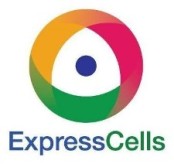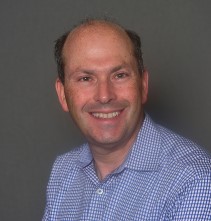
© CEOCFO Magazine -
CEOCFO Magazine, PO Box 340
Palm Harbor, FL 34682-
Phone: 727-
Email: info@ceocfocontact.com


Search





Business Services | Solutions
Medical | Biotech
Cannabis | Hemp
Banking | FinTech | Capital
Government Services
Public Companies
Industrial | Resources
Clean Tech
Global | Canadian
Lynn Fosse, Senior Editor
Steve Alexander, Associate Editor
Bud Wayne, Marketing
& Production Manager
Christy Rivers -






 Print -
Print -
ExpressCells—A Rapidly-
 Matthew Handel
Matthew Handel
CEO
ExpressCells
Contact:
Matt Handel, CEO
484-
Interview conducted by:
Lynn Fosse, Senior Editor
CEOCFO Magazine
Published – April 5, 2021
CEOCFO: Mr. Handel, it has been about a year since we have spoken with you about ExpressCells and much has gone on. First, would you tell us about achieving your first patent recently.
Mr. Handel: Yes, that was a lot of hard work. The patent was granted on January 5th of this year. When you consider that the original filing was in November of 2016, it shows you how much it requires. We are very pleased with it. It matches our expectations we had and we considering it a jumping off point to build an IP portfolio. We have applications for broader patents filed in the United States and we are in the process of securing international patents. We hope to see progress on that, now that we have our first US patent.
CEOCFO: What is the basis for the patent?
Mr. Handel: The patent itself is around a specific plasmid. It is a core part of our technology and the patent specifies the construction of the plasmid. That construct is the core of our technology.
CEOCFO: What is the idea behind ExpressCells? What is the technology?
Mr. Handel: The idea behind ExpressCells is to make it easier to insert genes into cell lines. You can do that for a variety of reasons. In theory, you could do it for therapeutics or to produce proteins that could be used to treat patients.
Our particular approach is to help accelerate research. Before you can do research in people or animals, you do it in cells and for many years, scientists needed to tailor the experiment to the cell line. Now, we can tailor the cell line to the experiment. We do that by inserting genes that code for certain proteins that allow a researcher to highlight certain parts of the cell.
The thought behind our gene-
CEOCFO: What is it you understand that allows you to do this when others have not?
Mr. Handel: That actually comes back to our patents. It is about how you make the process more efficient. It is not easy to insert genes into cells. There are many mechanisms that try to prevent that from happening, in order for the organism—like us—to protect the viability of our own cells.
There are three aspects that we have combined. One is that we use a plasmid technology. A plasmid, if you think about, is a free-
CEOCFO: Where is the scientific community? Do they know? Are they beating a path to your doorstep?
Mr. Handel: I think we are starting to make progress! One of the challenges of being a startup and being a small company is awareness. People cannot buy your product if they do not know that you exist. However, after a year of advertising, of promotion, of sales, we have built a strong pipeline. Some of our customers are people that we have reached out to, but some are people who reached out to us. They may have found us through our advertising, through searching for us on Google, or from the connections we have built since we launched the company.
Until COVID 19, we were also active at a variety of conferences and trade shows. We have done several more of those online and it gives people a chance to learn who we are and see what we can do.
CEOCFO: What stands out to potential customers? Have you figured something that really jumps out and gets attention or is it different things for different prospects?
Mr. Handel: It is always individualized, but a few things do stand out. One is our ability to be able to knock multiple genes into the same cell line and do it quickly. That is important, because it is hard enough to knock in one gene. It gets much more difficult when you need to do multiple genetic edits and think that is attracting clients.
A second factor is the level of precision. There are other technologies that allow you to insert a gene, but you are not necessarily sure where that gene is going to go. It will be somewhere in the cell, but that is different than being in a specific location in the genome. We can precisely place cells, and since you know where the target is, you know what results to expect.
If there is one other thing that stands out, it’s customer service. People think scientific businesses are different and that maybe customer service does not matter. That is not true. Our customers are people, and like other people, they expect good service. Customers like quick responses. Customers like getting clear information. Customers like things being delivered on time or even a little early. Therefore, we really focus on giving our customers high customer service.
CEOCFO: Where does price come into play?
Mr. Handel: I will put it this way: everyone wants price to be less. We certainly are not going to charge more than the market can bear, but we also work to provide value. Some of the cell lines that we are making are very complicated, so which comes with a cost. At the same time we want to provide value for our customers. We do not always focus on price, but it is not always our choice. We are usually in competitive bids, so we need to make sure that we can deliver our products at a price that is at market price.
CEOCFO: Given that we know everybody likes low prices, are you surprised that potential customers do not recognize the value and so would not be to upset about paying more?
Mr. Handel: We do not charge more; that is key. By charging market price and delivering cells more quickly or that are more complicated, our customers get more value for their money. One of the things we have found is that some of our customers came to us because they had tried other companies or other technologies and those had not worked. These customers recognize that we are providing the best solutions for their research needs.
CEOCFO: Do you have a standard set of cell lines? Do you create cell lines specifically for a customer? How does it work?
Mr. Handel: We do both. Our business falls into two categories: catalog and custom cell lines. Catalog is exactly what it sounds like: these are cell lines that we have already made. They are sitting frozen in our cell bank. You can go online, email us saying “I would like cell line EXP-
More of our business though, is currently on the custom side. We are taking cells and creating unique cell lines for customers, because, going back to what I said before, they usually have specific research needs and they need a cell line that will match the experiment. This is often something that is unique to that company.
CEOCFO: When you develop a cell line, specifically for a company, can you use it or can you use the idea behind it for another customer or does it become theirs?
Mr. Handel: Usually, the own the cell line. Coming from the pharma world, I know how important both confidentiality and IP protection are. If you are working on a specific project, you do not want to alert the rest of the world that it is going on. Therefore, not only are we not sharing those cell lines with other people, but we also maintain strict confidentiality about what projects we are doing with our customers. They do not want to give away their IP, because it is vital to them to be able to develop their products.
That being said, there has been times where customers have agreed to allow us to convert their cell lines into catalog items. Sometimes, it is because they are not working on something confidential and sometimes, they are academic customers who are not looking to develop something in secret. They are looking to collaborate and have other people work in the similar area.
CEOCFO: Do you need to keep a large inventory of the cell lines that are in your catalog?
Mr. Handel: We do not have to keep a large inventory. All of the cells that we have in our catalog are frozen in test tubes. If we need to make more, we simply thaw them, incubate them and once they are incubated, we can freeze the new test tubes and ship them off. It does not take a lot of space to do that.
CEOCFO: What have you learned over time, as you have been developing ExpressCells? How is the product different today than perhaps what you envisioned?
Mr. Handel: That is interesting, because I do not think of it as the product being different as much as what we are doing with the product may be different. There are a couple of things that stand out. When we first started ExpressCells, we thought most of our business would be what is called “tagging.” This is where we insert a gene that codes for a fluorescent protein, for example, so it is easier for a scientist to track what is going on in a cell. As it turns out, we are doing those projects, but we are doing much more of what I call overexpression projects. These are projects where the customer wants a cell to express a protein not usually expressed in that cell.
Our COVID-
CEOCFO: How else has COVID affected the company in terms of funding and recognition?
Mr. Handel: COVID-
The third impact was on how we promoted to customers. We had always intended to emphasize online promotion, which we accelerated since we were not going to be in a position to physically meet customers. We paid for that by de-
CEOCFO: Are you seeking funding, investment or partnerships now?
Mr. Handel: We are actually wrapping up a Series A extension. By the time this is published, that will have been completed. We plan to start a Series B during the second quarter of 2021.
CEOCFO: What is next for ExpressCells?
Mr. Handel: A couple of things! One, we plan to build partnerships. There are companies out there that are doing interesting things with cells and we would like to partner with them. These companies that have good customer bases and we would love to offer a variety of joint products and services that meet customer needs. We are speaking with several companies about how we can jointly access those customers.
We are also planning to conduct R&D, especially in the field of stem cells. We get many requests for stem cells. There is a great deal of interest in genetically editing them and that is an area into which we would like to advance our technology. That is part of the reason or the Series B. 2021, so far, has been a busy year for us and we need to hire more people to do all of this work. We are not complaining! We like keeping busy!
ExpressCells | Matthew Handel | Cell Lines for Gene Editing | Gene Editing Tools | ExpressCells—A Rapidly-
‘The thought behind our gene-
Matthew Handel